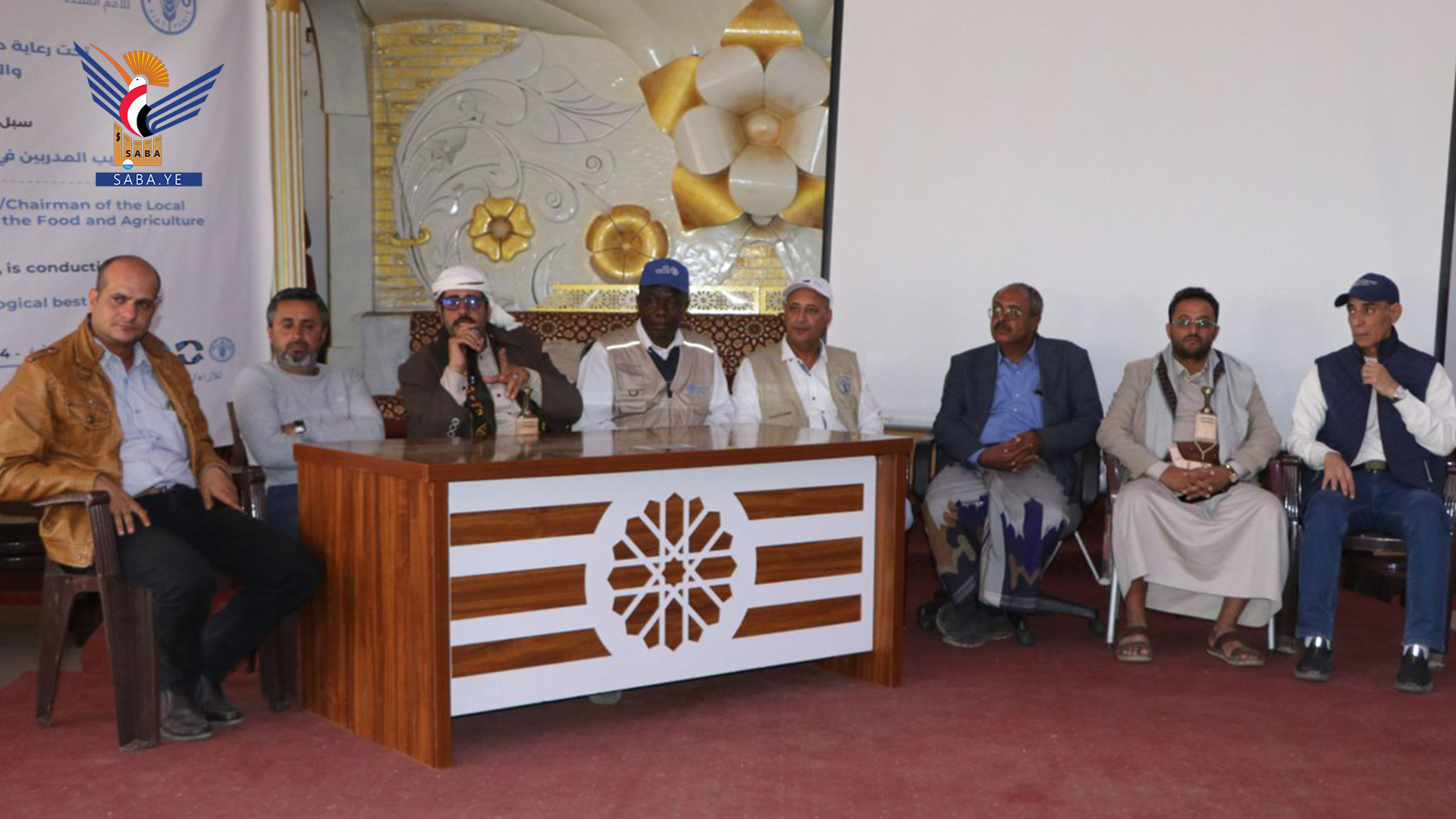Dhamar - Saba:
A training course for trainers in the field of establishing field farm schools concluded on Thursday in Dhamar.
Thirty participants from agricultural engineers in Otmah district participated in the course, which lasted five days within the project "Enhancing Resilient and Sustainable Livelihoods in Rural Yemen" implemented by the Food and Agriculture Organization of the United Nations (FAO) with funding from the Global Environment Fund (GEF).
At the conclusion, which was attended by Director of the Environmental Protection Authority Branch Dr. Ibrahim al-Jarmouzi, Project Manager in Otmah al-Hassan al-Bukhaiti and Director of Otmah Reserve Mohammed Salah, Director of the Project "Enhancing Resilient and Sustainable Livelihoods in the Yemeni Rural Areas" at FAO Dr. Salvador, indicated that the participants in the course received information and knowledge about the project, its objectives and components, and its activities related to developing livelihoods and preserving natural resources in the reserve.
He explained that the participants learned about the principles, features and topics of farmer field schools, managing water resources in light of scarcity, water and soil conservation practices, beekeeping, agro-ecosystem analysis, and community environmental risk systems, in addition to a practical application of agro-ecosystem analysis, complaints and feedback mechanism, community environmental protection, and communication and documentation skills in field schools.
He stated that the project will work to establish 30 field schools and train 500 farmers through learning by doing in their field schools, and learning about the best agricultural environmental practices, with a focus on producing food and cash crops, and helping them identify crops, the most suitable for their agricultural sites, including agricultural tillage practices and water saving techniques, with a focus on coffee crops, and the rehabilitation of nurseries, with the aim of supporting coffee and other crops in the region.
It also focuses on the rehabilitation of agricultural terraces for coffee production, the rehabilitation of traditional water harvesting infrastructure, the management of water springs, the rehabilitation of water tanks, the installation of modern drip irrigation systems to support environmental agricultural production, coffee production and linking them to traditional water harvesting systems, and building community capacities.
For his part, the project coordinator, Abdulkarim al-Sabri, stated that the project aims to support and develop sustainable livelihoods for rural communities in Otmah Reserve, and seeks to serve agricultural activity within the district and encourage coffee cultivation, manage watersheds, establish water harvesting facilities, introduce smart agricultural systems adapted to climate change, improve vegetation cover, and provide agricultural services in both animal and plant sectors.
He added that the project seeks to contribute to adapting to climate change, preserving biodiversity, and sustainable land management across the agriculture and livestock sectors, reaching environmentally adaptive agricultural models that support sustainable livestock management, and building capacities aimed at supporting sustainable land management, preserving biodiversity and resilient livelihoods.

| more of (Local) |



